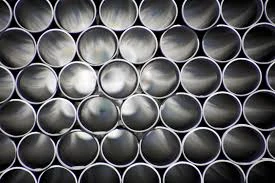
-
 Afrikaans
Afrikaans -
 Albanian
Albanian -
 Amharic
Amharic -
 Arabic
Arabic -
 Armenian
Armenian -
 Azerbaijani
Azerbaijani -
 Basque
Basque -
 Belarusian
Belarusian -
 Bengali
Bengali -
 Bosnian
Bosnian -
 Bulgarian
Bulgarian -
 Catalan
Catalan -
 Cebuano
Cebuano -
 China
China -
 China (Taiwan)
China (Taiwan) -
 Corsican
Corsican -
 Croatian
Croatian -
 Czech
Czech -
 Danish
Danish -
 Dutch
Dutch -
 English
English -
 Esperanto
Esperanto -
 Estonian
Estonian -
 Finnish
Finnish -
 French
French -
 Frisian
Frisian -
 Galician
Galician -
 Georgian
Georgian -
 German
German -
 Greek
Greek -
 Gujarati
Gujarati -
 Haitian Creole
Haitian Creole -
 hausa
hausa -
 hawaiian
hawaiian -
 Hebrew
Hebrew -
 Hindi
Hindi -
 Miao
Miao -
 Hungarian
Hungarian -
 Icelandic
Icelandic -
 igbo
igbo -
 Indonesian
Indonesian -
 irish
irish -
 Italian
Italian -
 Japanese
Japanese -
 Javanese
Javanese -
 Kannada
Kannada -
 kazakh
kazakh -
 Khmer
Khmer -
 Rwandese
Rwandese -
 Korean
Korean -
 Kurdish
Kurdish -
 Kyrgyz
Kyrgyz -
 Lao
Lao -
 Latin
Latin -
 Latvian
Latvian -
 Lithuanian
Lithuanian -
 Luxembourgish
Luxembourgish -
 Macedonian
Macedonian -
 Malgashi
Malgashi -
 Malay
Malay -
 Malayalam
Malayalam -
 Maltese
Maltese -
 Maori
Maori -
 Marathi
Marathi -
 Mongolian
Mongolian -
 Myanmar
Myanmar -
 Nepali
Nepali -
 Norwegian
Norwegian -
 Norwegian
Norwegian -
 Occitan
Occitan -
 Pashto
Pashto -
 Persian
Persian -
 Polish
Polish -
 Portuguese
Portuguese -
 Punjabi
Punjabi -
 Romanian
Romanian -
 Russian
Russian -
 Samoan
Samoan -
 Scottish Gaelic
Scottish Gaelic -
 Serbian
Serbian -
 Sesotho
Sesotho -
 Shona
Shona -
 Sindhi
Sindhi -
 Sinhala
Sinhala -
 Slovak
Slovak -
 Slovenian
Slovenian -
 Somali
Somali -
 Spanish
Spanish -
 Sundanese
Sundanese -
 Swahili
Swahili -
 Swedish
Swedish -
 Tagalog
Tagalog -
 Tajik
Tajik -
 Tamil
Tamil -
 Tatar
Tatar -
 Telugu
Telugu -
 Thai
Thai -
 Turkish
Turkish -
 Turkmen
Turkmen -
 Ukrainian
Ukrainian -
 Urdu
Urdu -
 Uighur
Uighur -
 Uzbek
Uzbek -
 Vietnamese
Vietnamese -
 Welsh
Welsh -
 Bantu
Bantu -
 Yiddish
Yiddish -
 Yoruba
Yoruba -
 Zulu
Zulu
Durable Fiberglass Solutions for Enhanced Resistance to Corrosion in Various Environments and Applications
The Benefits of Corrosion-Resistant Fiberglass
Corrosion is a significant issue that industries around the world face daily. Whether due to environmental factors or the inherent properties of the substances a material is exposed to, corrosion can lead to extensive damage, increased maintenance costs, and potential safety hazards. In this context, corrosion-resistant fiberglass emerges as a solid solution, combining versatility, strength, and durability.
Corrosion-resistant fiberglass, also known as fiberglass reinforced plastic (FRP), is engineered to withstand the degradation caused by various corrosive agents such as chemicals, moisture, and varying temperatures. It is made from a combination of glass fiber and resin, resulting in a lightweight yet strong material that is resistant to corrosion. This reinvention of traditional materials provides a plethora of advantages across multiple industries.
The Benefits of Corrosion-Resistant Fiberglass
Moreover, fiberglass is inherently non-conductive, making it an excellent choice for applications where electrical insulation is desired. This property allows it to be safely used in environments where electrical safety is paramount, thus reducing the risk of accidental electrocution or equipment failure.
corrosion resistant fiberglass

In terms of maintenance, fiberglass holds a significant advantage over traditional materials. Its resistance to corrosion means that products made from this composite require less frequent repairs and replacements compared to metals. This not only helps in reducing operational costs but also minimizes downtime, which is crucial for industries that rely on continuous processes. Additionally, fiberglass surfaces are much easier to clean and sanitize, which is critical in food and pharmaceutical sectors.
Another considerable benefit of corrosion-resistant fiberglass is its adaptability and customization. The manufacturing process can be tailored to meet specific requirements, such as varying thicknesses, colors, and textures. This flexibility allows engineers and architects to design components that fit precisely within the parameters of their projects, without compromising aesthetics or functionality. Furthermore, fiberglass can be molded into complex shapes, making it ideal for intricate designs that metal cannot achieve easily.
Despite its many advantages, it is essential to consider the limitations of fiberglass. For instance, while it is incredibly strong in tension and compression, fiberglass can be more brittle than metals, making it less suitable for high-impact applications where flexibility and toughness are critical. Therefore, careful consideration and engineering are necessary when choosing fiberglass for specific applications.
In summary, corrosion-resistant fiberglass represents a remarkable advancement in materials science. Its unique combination of chemical resistance, low maintenance needs, electrical non-conductivity, and design flexibility makes it a valuable asset across various industries. As industries continue to seek cost-effective solutions for combating corrosion and enhancing safety, fiberglass will undoubtedly play a crucial role in shaping the future of materials used in challenging environments. Its adaptability to meet the needs of distinct sectors reflects a commendable response to the ongoing challenges posed by corrosion and environmental degradation. The adoption of corrosion-resistant fiberglass not only protects investments but also promotes sustainability and innovation in material technology.
Latest news
-
High-Quality Fiberglass Car Bodies Durable GRP Car & Boat Body SolutionsNewsJul.08,2025
-
High-Quality Fiberglass Dual Lamination Product Manufacturer Durable FRP & GRP Dual Lamination SolutionsNewsJul.08,2025
-
Rectangular Tank with Dimensions for GRP Calculation Custom Fiberglass GRP Rectangular TanksNewsJul.07,2025
-
High-Quality Fiberglass Weir Custom FRP Weir & Fiberglass Tanks ManufacturerNewsJul.07,2025
-
CPVC FRP Pipe A Reliable Choice for Industrial Applications High Strength & Corrosion ResistanceNewsJul.07,2025
-
Fiberglass Scrubber for Effective Cleaning and Stain Removal – Superior Performance in Various ApplicationsNewsJul.06,2025









